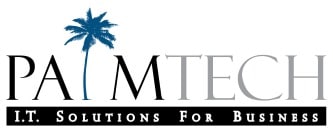
Although cyberattacks on businesses have become increasingly prevalent in recent years, many small-business owners assume that their business is immune to such attacks. This belief often stems from the notion that cybercriminals target larger companies. However, the reality is that cyberattacks are opportunistic crimes, and small businesses often hold a wealth of sensitive data without adequate safeguards. Therefore, it is essential for every small-business owner to have a plan in place to prevent becoming a victim of cyberattacks. This article will outline some effective strategies for deterring cybercriminals and safeguarding your business.
Implement password management solutions
Deploying a company-wide password management solution is widely considered the most critical measure for enhancing security across all systems and applications. Passportal, for instance, offers various features such as auditing password changes, integrating with multifactor authentication solutions, encrypting passwords both in transit and at rest, and streamlining password updates through automation. These functions are invaluable in protecting your organization’s sensitive information.
Back up your data regularly
Creating backups ensures that data can be restored in the event of primary data failure. Such failures can occur due to hardware or software malfunctions, data corruption, or human-induced incidents such as accidental deletion or malware attacks. Backup copies enable the recovery of data from a previous point in time, facilitating business continuity in the event of an unplanned disruption.
To guard against primary data loss or corruption, it is essential to store backup copies on a separate medium. This can be a simple external drive or USB stick, a disk or tape drive, or cloud storage. These storage mediums can be kept on the premises or in a remote location.
Making consistent and regular backup copies is crucial for minimizing data loss between backups. The longer the time between backup copies, the greater the likelihood of data loss during recovery. Retaining multiple copies of data provides added security and flexibility to restore data to a point in time unaffected by data corruption or malicious attacks.
Keep your system updated
Business owners and employees often overlook system updates because of their busy schedules. However, this is a dangerous mistake because outdated systems are more vulnerable to hacking. To avoid this, it is crucial to regularly upgrade and update your hardware and software to close security gaps and make it difficult for hackers to gain access.
Implement the principle of least privilege (POLP)
Access control is governed by the principle of least privilege, which specifies that a person should possess only the essential access privileges required to accomplish a particular job or task, and nothing else. For example, an employee tasked with processing payroll checks should be granted access only to that specific function in the payroll application. The benefits of POLP include:
- Minimizing the attack surface – By safeguarding superuser and administrator privileges, the attack surface is reduced, which in turn reduces the number of pathways that a malicious actor can utilize to obtain access to sensitive data or launch an attack.
- Mitigating the spread of malware – By restricting access to only the necessary resources, POLP can prevent the spread of malware throughout the network, thus preventing it from infecting other connected devices.
Use additional security protocols
To protect your business against cyberattacks, it’s crucial to deploy multiple security measures. Antivirus protection is a necessary tool that can prevent malware from compromising your devices and data. You should choose reliable programs from reputable providers and use only one antivirus application per device. Nowadays, modern anti-malware protection comes with advanced options that utilize artificial intelligence and detect abnormal device behavior that may signal an attack.
In addition to antivirus software, implementing a zero trust policy and next-generation security measures can significantly enhance your business’s cybersecurity. Investing in firewall protection is another effective strategy to safeguard your business against hackers. Firewalls can screen out harmful activities and viruses on the internet and regulate traffic entering your devices. Combined with intrusion detection, firewalls can serve as virtual security guards that can keep potential threats from entering your systems.
Train your employees
Many employees fall prey to phishing schemes or share passwords without any hesitation. Therefore, the human element is one of the weakest links in any cybersecurity plan. To prevent this, it is essential to educate and train all employees on how to recognize and prevent potential cyberattacks.
If you require assistance in enhancing the effectiveness of your cybersecurity, call our security experts today.

